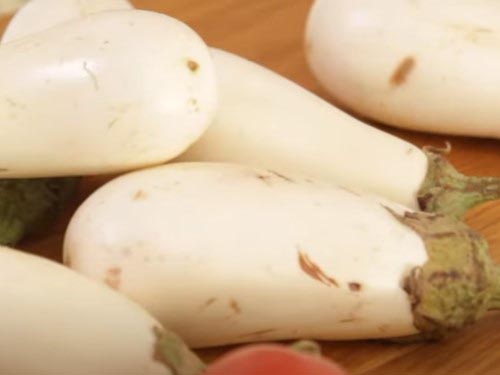Tastes
Santorini is a place truly blessed as it produces excellent quality agricultural products attributed to the peculiar ecosystem of the island, which is the creation of volcanic eruptions over the centuries. The traditional products of Santorini stand out worldwide and that's why many of them have been recognized as products of Protected Designation of Origin (PDO).
Fava (split peas)
One of the most famous agricultural products of Santorini is "fava" that comes from the Lathyrous clymenous plant and has been cultivated exclusively on the island for 3500 years, while since 2011 it has been recognized as a product of Protected Designation of Origin (PDO). The taste of this variety is unique, possibly owing to the unique nutrients offered by the volcanic soil of the island.
Small Tomato
Santorini's tomato is a small-fruited tomato, which belongs to the Lycopersicon esculentum tomato variety. Since 2013 the Commission has included it in the European list of Protected Designation of Origin (PDO) and Protected Eco (PDO) products. In Santorini this variety found the ideal environment to grow due to the dry volcanic soil.
White Eggplants
White eggplants are grown only in Santorini and they origin from Egypt. It is an excellent vegetable, very tasty, sweet and has very few seeds in the center compared to other varieties. It is ideal for frying as it does not absorb much oil and is a very good "meze" to accompany your ouzo.
Katsouni (Cucumber of Santorini)
Katsouni is a type of cucumber that grows only in Santorini, ascribed to the special microclimate and soil of the island. It is larger, with thicker flesh and more spores than common cucumbers. If it matures enough, it becomes very sweet with a melon flavor.
Wine
The wines of Santorini are worldwide known, while the Santorini vineyard is the oldest in Greece and one of the rarest in Europe with rooted vines. The PDO area Santorini is the most important Greek region PDO, for white dry wines both in Greece and abroad. PDO Santorini wine is produced by Assyrtiko by 75% in dry and by 51% in sweet wines. Two of the most important wines of the island are Nychteri (white dry wine) and Vinsanto (sweet wine).
Local Beers
In recent years, the brewery in Greece has been developed a lot, with many small breweries producing excellent quality beers; Santorini could not be an exception. There are two special microbreweries on the island, Volkan brewery and Santorini Brewing Company, creating beers of excellent quality, as evidenced by the many distinctions they have won at national and international level. If you are a beer lover, do not forget to try Santorini beers; you will certainly not be disappointed.
Chloro Santorini
This is the most traditional cheese of Santorini, which is produced from goat or sheep and goat milk and is usually eaten fresh, also called green. It has a slightly salty taste and creamy texture. If not consumed fresh, it is kept in brine until it hardens. It is hard to find it as its production is very small.
Melitinia
Melitinia is a cheese dessert that is usually made on Easter days. This delicious dessert was made from the dough that was left over from the bread, thyme honey and the traditional Santorini chlorotyri. The finger pinches give the special lacy shape to the honeycombs. You will find this particular sweet in other Greek islands as snacks, lamps or kalitsounia.
Koufeto (Sweet Candy)
It is a traditional dessert that is served at weddings, inaugurations, celebrations and baptisms. It is prepared with roasted almonds and honey, symbolic ingredients for the fortune future of the couple. Honey for the androgynous to have a sweet life, while almonds for fertility. Now due to the tourist development it is widely sold in stores all over the island.
In the local restaurants and taverns you can taste several traditional recipes, made from the unique ingredients produced by the land of Santorini, such as the tomato meatballs, the sfougato, the Santorini salad, the apochti, the atherinopita.




